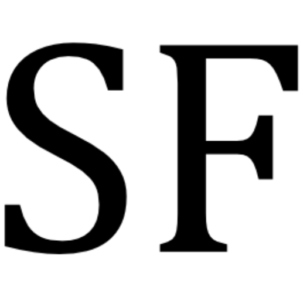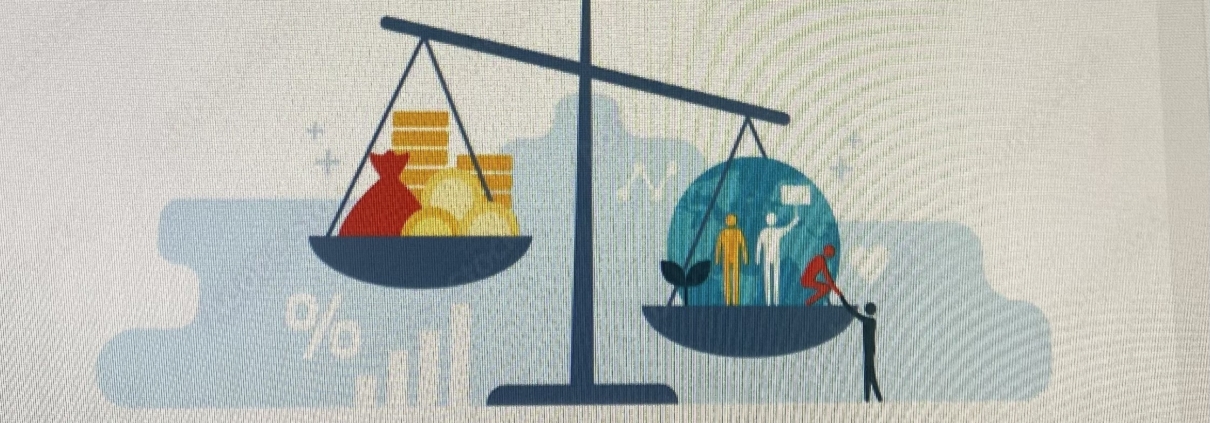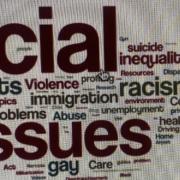Taking a Complexity Perspective on Canada’s Challenges, Part II: A Spotlight on Neoliberalism
Introduction
In Part I of my series Taking a Complexity Perspective on Canada’s Challenges, I explored some of the significant issues Canadians and our new government are facing. I argued that we need to adopt a perspective informed by complexity science, as outlined by the Complexity & Management Centre at the University of Hertfordshire. This perspective shows that what is happening in our world results from the interconnected actions, inactions, and intentions of countless interdependent individuals interacting with each other and the natural world. From this web of interactions, patterns emerge that shape our collective experience.
A particularly dominant pattern is the ideology (idiotology) of neoliberalism.
In this Part II, I examine neoliberalism, a key “pattern” that profoundly influences our relationships and social structures. I’ve touched on neoliberalism before in my article, Carney’s (And Canada’s) Next Task, but in this piece, I revisit it as an important example of the patterning of our existence to illustrate how it organizes and shapes our lives.
The Rise of Neoliberalism
Neoliberalism, as an approach to governance, was popularized by Thatcher and Reagan in the 1970s and 1980s. This set of policies sought to reduce government intervention in economic and social activities. It advocated for privatizing government services, favoring the private sector, slashing taxes for the wealthy and corporations, reducing social safety nets, and enacting deregulation in labor, financial markets, commerce, and investment. Neoliberalism replaced a focus on the common good with an emphasis on the financialization of everything and an individualistic worldview that disregarded the interests of others in a competitive, “dog-eat-dog” environment.
Proponents of neoliberalism promised that by reducing government interference, capitalism’s potential would be unleashed, leading to widespread prosperity—a concept known as “trickle-down economics.” However, this was more of a marketing pitch than sound economic theory. There was no credible research to support these claims. In fact, the evidence we’ve gathered over the past few decades suggests the opposite: Neoliberal policies have worsened wealth inequality and led to negative social consequences.
While the U.S., and to a lesser degree the U.K., are extreme examples of wealth inequality under neoliberalism, Canada, too, is experiencing rising income inequality, with similar social issues emerging. On both sides of the border, we see escalating greed, income inequality, and unsustainable growth, all of which have led to negative social impacts. In addition, we see growing inequality before the law and the erosion of mutuality. Historical research on the collapse of empires reveals how these patterns have been a major contributor to societal breakdown.
Is This the Canada We Want?
If Canadians were consulted about the type of country they wanted to live in, it is hard to believe that this would be their vision. Perhaps the wealthiest 0.01% of the population may feel insulated from the negative effects of neoliberalism, as their wealth and influence have increased significantly, especially in recent years, including during the COVID-19 pandemic. Apparently, bunkers are now the new ‘must have’ accessory of the super-rich. For most of us, however, the undesirable nature and unsustainability of the neoliberal model should be clear.
Can We Break Free from This Pattern?
Despite the overwhelming evidence against neoliberalism’s effectiveness, this pattern has a tight grip on our governments and our lives. Just how tight a hold should concern all of us. One of the implications of complexity theory is described by some as ‘lock-in’. What this means is that a patterning of how we relate to one another – neoliberalism in this case – becomes so dominant that it is extremely difficult to dislodge. Already, across the political spectrum, parties tend to embrace neoliberal policies, though the specific approach may vary depending on local history and culture. In Canada, most political parties (with the possible exception of the NDP and the Greens) accept neoliberalism as “just the way things are,” a situation Alex Himelfarb describes as a “political order.” Increasing income inequality in Canada is a testament to this.
While neoliberalism is undeniably entrenched, this doesn’t mean it is permanent or unchangeable. Complexity science shows that our relationships and systems are always evolving. However, neoliberalism remains a powerful force, and its influence has led us down a path like the one that led to the rise of populist movements like Trump’s. The more we continue along this path, the closer we get to what is effectively societal “lock-in,” with its damaging social, environmental, and economic consequences.
The Difficulty of Change
Whether or not we have reached a point of no return, shifting away from neoliberalism will be challenging. Those with wealth and power have a vested interest in maintaining the status quo and the means to resist changes that threaten their privileges. In the U.S., powerful monopolies and oligopolies have been able to shape public policy to serve their interests, thanks in part to a lack of restrictions on campaign contributions.
Why Should We Care?
Neoliberalism is an immensely strong force that affects every aspect of our society. It shapes how we perceive issues, what we expect, and what we take for granted. Our understanding of these challenges is influenced by this dominant pattern. To change how we relate to one another will require not just policy shifts but a fundamental shift in how we view and interact with our world.
The Path Forward
The necessary changes to achieve shared prosperity will be hard. Neoliberalism has worked well for those who have benefited from it, and they will understandably seek to maintain the status quo. Even those who have been marginalized may hold onto these patterns because they fear the uncertainties that come with change. However, the current system has become unsustainable, and continuing with “the same old” approach will only deepen the problems we face.
Our new Prime Minister, who has close ties to the corridors of finance and power, will need to challenge entrenched interests like the oil and gas industry and multinational corporations. Simultaneously, he will face the pressures of short-term political cycles. All of us must support these efforts, as no politician can remain in power if they fail to align with the electorate’s needs.
If we want a Canada that fosters sustainability and shared prosperity rather than serving the interests of the wealthiest few, time is running out to change course. We are already on the path the U.S. has taken, and the consequences are clear. For those hesitant about change, I ask: if not now, then when? And if we wait, will it be too late?
What’s Next?
Having explored how neoliberalism has come to dominate the way we relate to one another, the next step is to consider the effect of these patterns over time and what that means for us practically — a key concept from complexity theory known as path dependence. This is what I will be exploring in Part III of this series.
In essence, path dependence means that the choices we make are not easily reversible. Every action opens some doors and closes others, limiting the type of futures available to us. While this might seem obvious, the implications are profound. Further, as I will point out, it’s not just what we do that shapes our future, but how we do it.
Understanding this helps us recognize that our current ways of being and structures weren’t inevitable. Instead, they have been shaped by the dominant patterning of relationships in our society. Crucially, if we want to live in a fair society, one in which prosperity is shared and not just appropriated by the few at the top of the heap, we need to challenge the ideology of neoliberalism.
The next part of this series will delve into these ideas and how our past limits our future. And how, through an understanding of leading-edge research into complexity theory and management, we might together explore the possibility of a better future for Canada.









